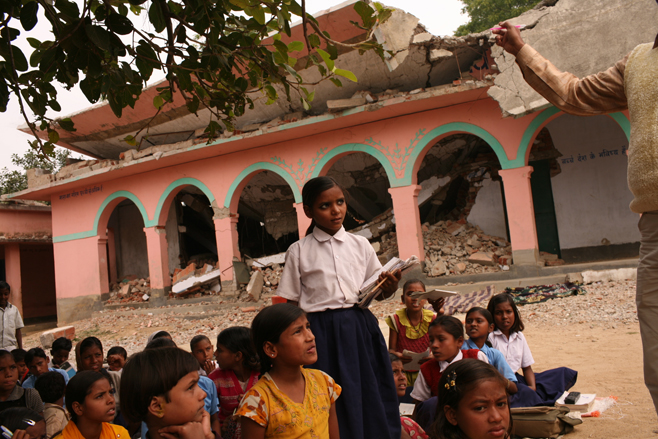GCPEA News
India: Implement UN Recommendations on Children
Armed Groups Target Schools
Human Rights Watch, June 19, 2014
India should carry out the recommendations of the United Nations Committee on the Rights of the Child to improve protection for children affected by armed conflict, Human Rights Watch said today. The Child Rights Committee made its recommendations to India public on June 19, 2014, in Geneva.
Non-state armed groups should halt their recruitment and use of children and attacks on schools, Human Rights Watch said.
“Children from India’s poorest and most marginalized communities are ending up on the front lines as combatants, or because their schools are bombed by armed groups,” said Meenakshi Ganguly, South Asia director at Human Rights Watch. “The UN has laid out a series of steps that the government should take to protect these children better.”
The Child Rights Committee stated that it was “deeply concerned” about opposition Maoist forces in central India as well as armed groups in the northeast, Jammu, and Kashmir recruiting and using anyone under 18 in hostilities. Human Rights Watch has previously documented Maoist forces’ use of children as young as 12 in armed operations. Human Rights Watch has also documented unlawful Maoist attacks on schools.
The committee urged India to promptly enact legislation that criminalizes the recruitment and use of anyone under 18 in hostilities by non-state armed groups. It also said India should take all necessary measures to prevent and eliminate the root causes of forced recruitment of children from poor and marginalized segments of society by non-state armed groups. Unlawful attacks on schools should be promptly investigated, and those responsible should be prosecuted and punished, the committee said.
The Child Rights Committee also expressed concern about government armed forces occupying schools in Maoist-affected areas, despite Supreme Court rulings prohibiting the practice. The committee said that India should “take all necessary measures to prevent the occupation and use of … places with a significant presence of children, such as schools, in line with international humanitarian law, expedite the vacation of schools as appropriate and take concrete measures to ensure that cases of unlawful … occupation of schools are promptly investigated, and that perpetrators are prosecuted and punished.”
Although security forces’ occupation and use of schools has declined since 2010, when Human Rights Watch documented the occupation of at least 129 schools, instances of dangerous dual use of schools continue, placing students and teachers potentially in the line of fire and harming children’s right to education.
A video released by Human Rights Watch and the Global Coalition to Protect Education from Attack calls for the end of the military use of schools around the world. The video includes an account from an Indian child concerned about the mistreatment of girls by security forces occupying her school. It also features an Indian teacher amid the rubble of his school, which was attacked by Maoist forces following its use by government security forces.
“The Indian government should finally and fully withdraw its security forces from schools,” Ganguly said. “India’s children are entitled to safe schools and safe childhoods.”





